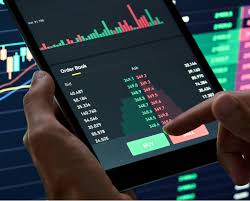
Ultimate Guide to Crypto Trading Platforms
As the cryptocurrency market continues to grow, the demand for reliable and user-friendly Crypto Trading Platforms has increased significantly. Navigating through the myriad of platforms can be daunting for both newcomers and seasoned traders. Here, we will explore various aspects of Crypto Trading Platforms, including their features, benefits, and tips on choosing the right one. Alongside this, we will touch upon key trends in the crypto trading industry, including the pivotal role of regulation and security measures. For more insights on crypto, visit Crypto Trading Platforms https://www.carlagericke.com/author/carla/page/30/
Understanding Crypto Trading Platforms
Crypto Trading Platforms serve as intermediaries that facilitate the buying and selling of cryptocurrencies. They provide users with the tools and services necessary to trade different cryptocurrencies, manage their portfolios, and access market data. Some platforms also feature advanced trading options, allowing for more complex trading strategies. The two main types of crypto trading platforms are centralized exchanges (CEX) and decentralized exchanges (DEX).
Centralized Exchanges (CEX)
Centralized exchanges are the most common type of crypto trading platform. They act as intermediaries between buyers and sellers, providing a user-friendly interface and a range of trading tools. Examples of popular centralized exchanges include Binance, Coinbase, and Kraken. Here are some key features of CEX:
- User Experience: CEX platforms typically offer intuitive designs that are easy to navigate, making them accessible for beginners.
- Liquidity: With a large number of users trading simultaneously, CEX platforms tend to have higher liquidity, ensuring that traders can execute their orders quickly.
- Variety of Trading Options: Users can often trade a wide variety of cryptocurrencies and implement different trading strategies (e.g., margin trading, futures).
- Security Measures: CEX platforms often employ advanced security protocols such as two-factor authentication (2FA) and cold storage for funds.
Decentralized Exchanges (DEX)

Decentralized exchanges operate without an intermediary, allowing users to trade directly with one another. They are built on blockchain technology and emphasize transparency and security. Examples of DEX platforms include Uniswap, SushiSwap, and PancakeSwap. Here are the key features of DEX:
- Privacy: DEX typically do not require users to provide personal information, thus ensuring higher privacy levels.
- Control Over Funds: Users maintain control over their private keys, reducing the risk of hacks and theft that can occur on centralized platforms.
- Smart Contracts: DEX platforms utilize smart contracts to execute trades, enhancing trustless transactions between parties.
- Access to New Tokens: DEX often list new and emerging tokens that may not be available on centralized exchanges.
Key Considerations When Choosing a Trading Platform
When selecting a Crypto Trading Platform, several factors come into play. It’s crucial to assess the platform based on your specific needs and trading strategies. Here are some considerations:
- Security: Always prioritize security features. Ensure that the platform utilizes robust security measures to protect user funds.
- Fees: Compare the trading fees, withdrawal fees, and deposit fees across platforms. Lower fees can significantly impact your trading profitability.
- User Experience: Choose a platform that offers an intuitive interface and suitable usability, especially if you are a beginner.
- Customer Support: Reliable customer support is vital for resolving issues promptly. Check user reviews to gauge the quality of support.
- Available Cryptocurrencies: Ensure the platform lists your desired cryptocurrencies, as some platforms may focus on specific tokens.
Trends in Crypto Trading
The crypto trading landscape is constantly evolving, with new trends emerging regularly. Here are a few noteworthy trends:
- Regulation Compliance: As governments worldwide take a more active role in regulating cryptocurrencies, platforms that comply with regulations are likely to thrive.
- Institutional Adoption: Increasing interest from institutional investors is shaping the market, leading to platforms developing services tailored to institutional clients.
- Integration of AI and Machine Learning: As technology advances, some platforms are incorporating AI to enhance trading strategies and user experience.
- Mobile Trading Apps: With the rise of mobile usage, many trading platforms are investing in mobile applications providing seamless trading experiences.
Conclusion
Choosing the right Crypto Trading Platform can significantly influence your trading success and overall experience in the crypto market. By understanding the differences between centralized and decentralized exchanges, evaluating security measures, and staying informed about market trends, traders can make well-informed decisions. Whether you are a seasoned trader or just starting, leveraging the right platform can be the key to navigating the ever-evolving crypto landscape with confidence.
In conclusion, crypto trading offers vast opportunities, but it is essential to exercise caution and due diligence. As the industry matures, staying updated on trends, regulatory developments, and technological innovations is crucial. This ensures you remain competitive and informed, allowing you to seize opportunities as they arise.
